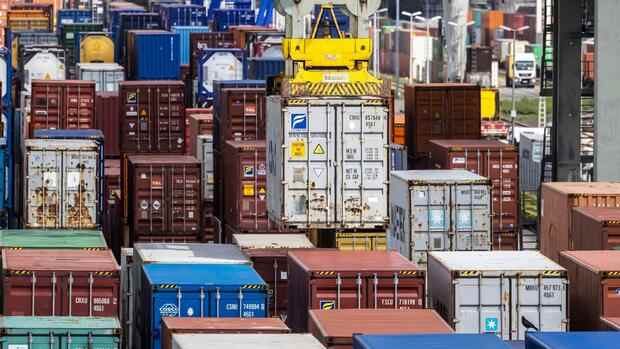If emissions could be reduced so that warming would be limited to two percent, Germany would still have to accept a decline in economic output in 2050.
(Photo: imago images / Arnulf Hettrich)
Berlin Climate change has serious consequences for Germany and its economy. Without a drastic reduction in greenhouse gases, the Federal Republic and other G20 countries could face new heat waves, droughts, forest fires and floods, warned on Thursday a study by the Italian Euro-Mediterranean Research Center for Climate Change (CMCC) on behalf of the European Climate Foundation.
Before the summit of the major industrialized countries (G20) on the weekend in Rome and the World Climate Change (COP26) beginning on Sunday in Glasgow, Scotland, the scientists warned that the G20 countries would lose an average of at least four percent of their economic output (GDP) per year as a result of climate change in 2050 should. The scientists warned that it would be eight percent by 2100.
If emissions could be reduced so that warming would be limited to two percent, Germany would still have to accept a minus of 1.35 percent or 45 billion euros in 2050.
In the worst case, Germany would have to forego 1.85 percent economic output annually in 2050 – then 2.95 percent by 2100. Agriculture, tourism and coastal regions are particularly threatened.
Top jobs of the day
Find the best jobs now and
be notified by email.
Heat waves could occur in Germany between 2036 and 2065 about 14 times more frequently than today, the report said. Agricultural droughts are likely to increase by 74 percent. East and central Germany could be hardest hit. “A drastic reduction in CO2 emissions would weaken many of these developments,” it said.
“It is time for the G20 to turn their economic agenda into a climate agenda,” said Laurence Tubiana, head of the European Climate Foundation. “The time window for effective measures closes quickly.” The G20 countries are faced with a decision: “To protect the global economy and initiate a rapid transition to a climate-neutral future – or to unhinge the global economy through climate-damaging policies.”
More: World Bank – phasing out coal would cost China nearly ten trillion dollars
